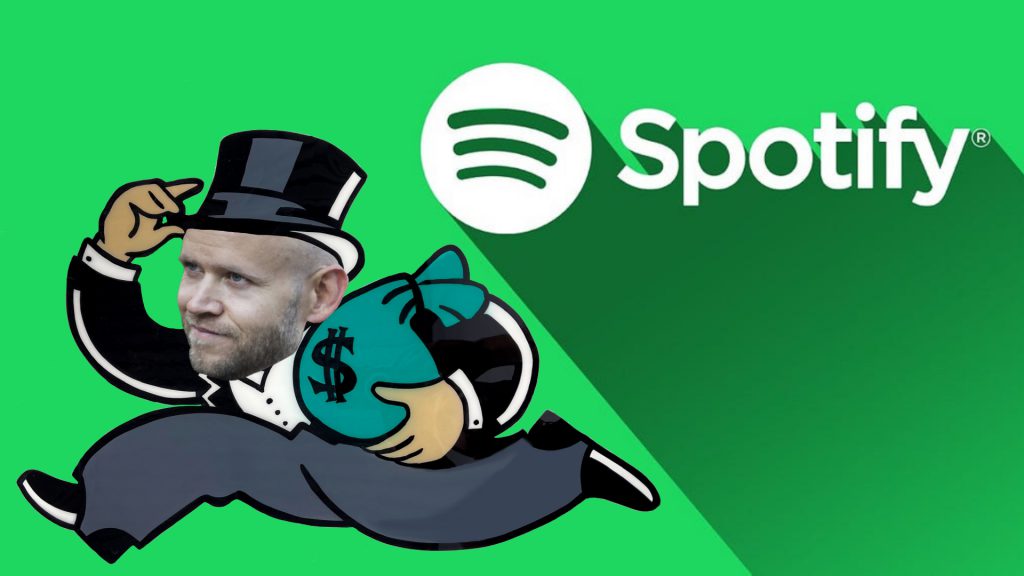Spotify’s recent overhaul of its royalty payment system has sparked concerns among emerging artists about the potential implications of these changes. While initially appearing reasonable, a closer examination reveals deeper issues that could disproportionately affect young musicians.
Under the new policy, tracks on Spotify with fewer than 1,000 streams annually will no longer generate royalties, effectively rendering a significant portion of artists’ catalogues unpaid for. This move has raised questions about Spotify’s commitment to supporting emerging talent and has drawn criticism for its potential negative impact on artists’ livelihoods.
Daniel Ek, CEO of Spotify, has come under scrutiny for his remarks regarding the value of original music. His assertion that “Today, with the cost of creating content being close to zero, people can share an incredible amount of content” has been met with backlash from the music community, with many arguing that it demonstrates a lack of understanding of the costs associated with creating quality music.
Indeed, my professional opinion is that Ek’s comments reflect a profound disconnect from the realities faced by emerging artists. The expenses involved in writing, recording, producing, mixing, and mastering music, not to mention artwork, distribution, and promotion, are substantial and often overlooked by platforms like Spotify.
This situation highlights the broader issue of artists’ compensation in the digital age, with companies like Spotify profiting from the creative labour of musicians while justifying minimal payments in legal terms. As the debate continues, it’s crucial for artists to explore alternative avenues for monetising their work and advocating for fair compensation.
Additionally, consider the financial perspective of Spotify’s operations. In the first quarter of 2024, Spotify reported impressive numbers, with monthly active users growing by 19% year-over-year to 615 million, subscribers increasing by 14% year-over-year to 239 million, and total revenue rising by 20% year-over-year to €3.6 billion. With a gross margin reaching 27.6% and operating income improving to €168 million, it’s clear that Spotify has the financial capacity to compensate artists fairly for their work.
Three years ago, Spotify had three million creators on the platform. Every year since, that number has increased, from four million to five million, to eight million at the end of 2020. Spotify cofounder and CEO Daniel Ek said during Stream On was quoted as saying, “I believe that by 2025, we could have as many as 50 million creators on our platform.”
Daniel Ek himself has highlighted Spotify’s focus on revenue growth and margin expansion, expressing confidence in the company’s ability to achieve its ambitious plans. Therefore, the notion that Spotify cannot afford to pay artists a fair commission for their work is debunked by its own financial performance. Just 7,500 artists on Spotify (out of over 8 Million) make $100,000 or more annually on the platform.
What can we do about it?
While it’s not possible to avoid streaming platforms completely in today’s day and age, let’s make an effort to take some of the power back from these greedy corporations. As an original artist, there are steps you can take to develop your own social media and online commerce system to sell your music:
- Build your own website. Utilise free website builders like Wix to create a professional online presence for your music. Utilise their templates to showcase your work and connect with fans.
- Create free social media pages to develop your artist brand. Utilise platforms like Facebook, Instagram, and TikTok to engage with your audience and promote your music.
- Upload one or two tracks to Spotify and treat it only as a business card. Use Spotify as a promotional tool to direct listeners to your other platforms where you have more control over monetisation.
- Upload a preview of your music to YouTube and include website information in the video description. Utilise YouTube to reach a broader audience and drive traffic to your website and social media channels.
- Get your music onto all platforms that can monetise your tracks for you. Services like DistroKid offer flat-priced distribution and come highly recommended for independent artists looking to expand their reach and generate revenue from their music.


This article provides a well-rounded and insightful critique of Spotify’s new royalty policy and its impact on emerging artists. The deep dive into the financial realities of creating music, juxtaposed with Spotify’s impressive revenue growth, makes a compelling case for fairer compensation. I especially appreciate the practical advice offered to independent artists, like building a personal website and leveraging social media for direct engagement and monetization. It’s refreshing to see solutions that empower musicians to take control of their careers, even while navigating the challenges posed by streaming platforms. A great read for any artist looking to thrive in the digital age!